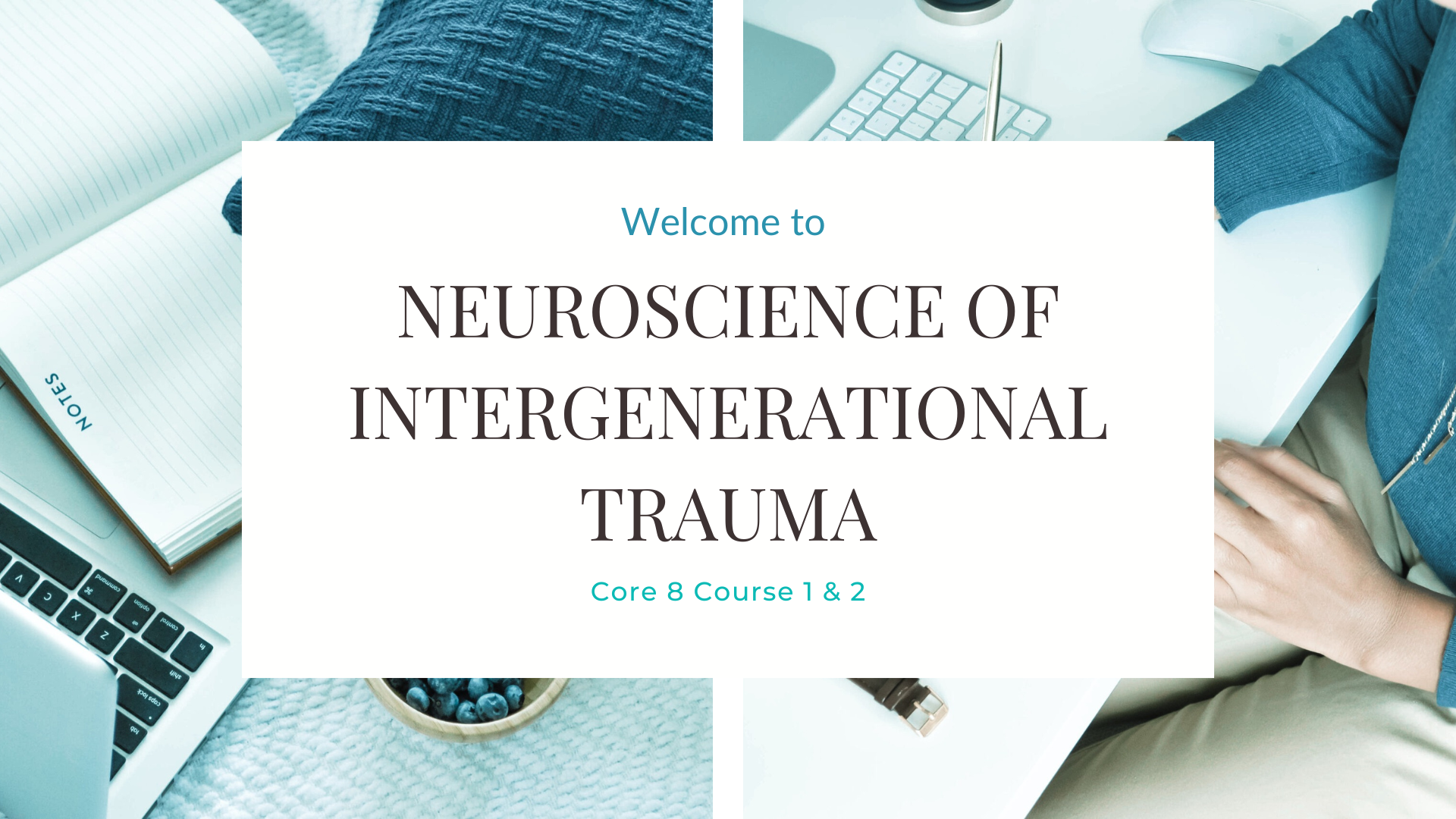CPtsd: Intergenerational Trauma Series
Core 8~ A Trauma Trained Framework for Breaking the Cycle of Toxic Family Stress
Professional training. Certification optional. CEU hours available for eligible professionals.
DEVELOPMENTAL trauma impacts
THE BRAIN
DEVELOPMENTAL TRAUMA IS a Hidden Epidemic
Healing the professionals Through NeuroSynqt™
💡 Take the Developmental Trauma & Brain Impact Quiz
Why do trauma patterns repeat across generations - even when clients know better?
This question sits at the heart of intergenerational trauma — the invisible inheritance carried through memory, identity, and learned protection. For many clients, it shows up as unexplained guilt, over-responsibility, emotional distance, or loyalty to what once caused harm.
Trauma does not end when the event is over. It transfers through both the brain’s stress and memory systems and the stories families tell to make sense of survival. What begins as adaptation in one generation becomes confusion and self-sabotage in the next.
Professionals trained through this unit will learn to see these repeating patterns not as pathology, but as the brain’s enduring logic for safety and belonging. Through the NeuroSynqt™ framework, you’ll explore how trauma lives across generations - in attachment, identity, and self-concept - and how to gently interrupt that cycle.
This comprehensive unit offers six in-depth courses that bridge neuroscience, developmental theory, and experiential integration. You’ll learn how to recognise, map, and reframe inherited trauma, guiding clients toward identity repair that is both compassionate and brain-informed.
Grounded in science and practice, this unit equips you to work confidently with clients who ask, “Why do I still feel responsible for everyone else’s pain?” by helping them rewrite the answer at the level where it began: in the survival-based architecture of the brain.
The Missing Link in Intergenerational Trauma Recovery
Professionals supporting clients with developmental or intergenerational trauma often see a familiar pattern - adults who understand their story yet still repeat it. Beneath insight lies a brain still coded for protection, loyalty, and survival.
Standard approaches rarely address the hidden intersection of identity, neuroscience, and family systems, where unresolved trauma is passed down through both learned behaviour and altered brain wiring. What looks like avoidance, self-sabotage, or guilt is often the brain’s inherited template for safety - a survival logic formed long before the client’s awareness.
This core unit provides a clear, trauma-trained pathway for professionals and individuals to:
-
Recognise the neurobiological pathways of inherited trauma and how the brain transfers stress responses across generations.
-
Decode the survival adaptations behind family roles and dynamics, reframing self-sabotage and conflict as learned protection.
-
Understand the link between attachment, memory, and identity, and how intergenerational trauma fractures coherence between them.
-
Apply the principles of neuroplasticity to restore connection, trust, and emotional regulation without retraumatisation.
-
Facilitate reflective exploration that helps clients identify patterns of repetition and consciously create new relational blueprints.
-
Integrate cultural, social, and spiritual dimensions of inherited trauma with compassion and sensitivity.
-
Model boundaries and empathy that promote healing across both practitioner and client relationships.
These courses bridge neuroscience with lived experience, helping you see beyond behaviour to the brain’s adaptive design - and how to gently rewire it toward freedom, integration and belonging.
🎧 Prefer to Listen While You Learn?
Complex trauma can make on screen reading feel heavy or disconnecting. Listening allows the brain to process the material more gently and helps you stay present as you learn.
You can now have your slides read aloud on any device using built in accessibility tools.
Full instructions for Mac, iPhone or iPad, Android, and Windows are included right inside this course.
💜 This feature is designed to support your learning style, not replace it.
🎙️ Linda’s teaching, coaching, and voice remain throughout every course. You will still hear Linda guiding you through the concepts, unpacking examples, and coaching from the slides as part of your learning experience.
👉 Use the Have Your Slides Read To You tab inside the course for device specific instructions and start listening your way through the course.
Here’s what you’ll walk away with…
A neuroscience-based map of how trauma patterns are transferred through families, shaping emotional regulation, memory, and behaviour.
-
Frameworks for identifying inherited roles and belief systems that drive intergenerational guilt, self-sabotage, or over-responsibility.
-
Practical tools and client worksheets for tracing family patterns, mapping adaptive logic, and restoring a coherent sense of self.
-
Brain-based methods for reframing survival patterns into pathways for emotional safety, relational repair, and identity integration.
-
Strategies to guide reflective dialogue that bridges generations — fostering compassion, accountability, and closure without blame.
-
Confidence to explain intergenerational trauma in clear, accessible language that empowers clients to see survival as intelligence, not failure.
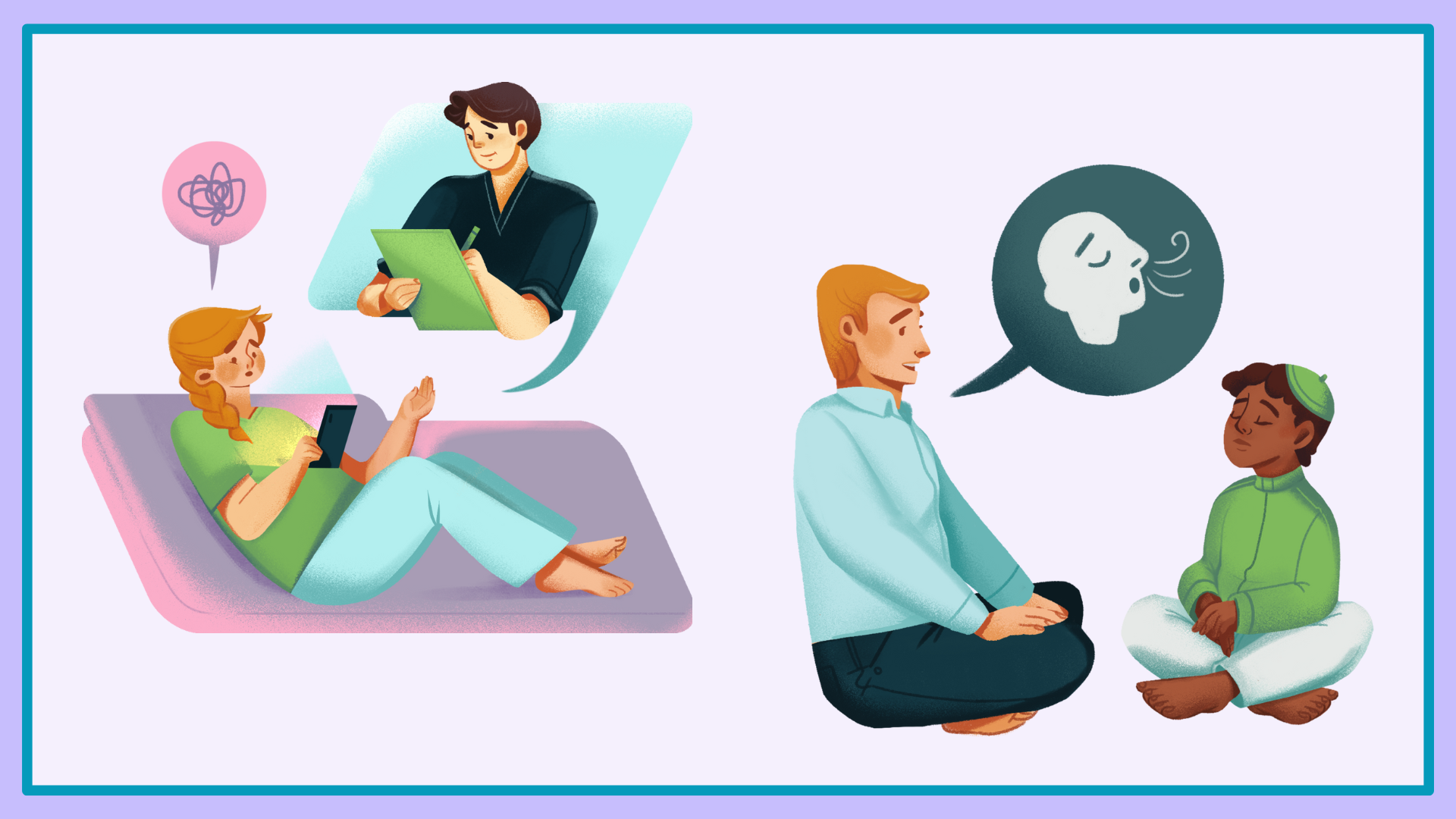
The depth of the content and the support this course offers is phenomenal! If you’re on the fence, I’d highly recommend taking the leap
Candace Alley,
CEO candacealley.com
Over the past year and a half, Linda has helped me experience growth that I thought was impossible. In a loving and compassionate manner, she has taught me tools and strategies to manage my trauma symptoms. Most importantly, she made me feel heard, seen, and understood.
Lisa Armele,
Ed.S., MA., CAS.
Linda Meredith is a powerhouse when it comes to bringing research and information together to help us understand complex trauma. More importantly, she breaks things down in a way that is easily accessible. The homework isn’t about memorising terms - it’s about embodying the knowledge while healing ourselves and supporting our clients. practically and effectively. As a professional who has had burnout 3 times, Linda's work has helped me not only return to work but to do so in increasing good health whilst helping clients globally achieve the recover results they also desire.
Sherry Yuan Hunter,
CEO Sandwich Parenting
What Makes the 6 Courses Impactful?
The four courses in this unit go beyond standard trauma education by exploring how intergenerational and developmental trauma intertwine to shape identity, relationships, and emotional patterns.
You’ll discover how the brain’s protective systems record, repeat, and transmit survival logic across generations - long after the original threat has passed. Through this lens, what appears as defiance, guilt, or self-sabotage becomes clear evidence of the brain’s inherited drive to protect connection at all costs.
Grounded in neuroscience and reflective practice, this unit helps professionals and individuals to:
-
Identify how trauma-related memory and emotional encoding shape intergenerational family patterns and survival strategies.
-
Understand how identity fragmentation develops through repeated role conditioning and generational loyalty conflicts.
-
Apply brain-based frameworks to interrupt inherited patterns while supporting clients to build emotional stability and internal coherence.
-
Use experiential and reflective tools that repair trust, foster belonging, and transform inherited trauma into relational wisdom.
This unit embodies the deeper purpose of all trauma-trained work - to help both client and practitioner move beyond awareness and into integration, where the brain, body, and identity reconnect to make healing sustainable and meaningful.

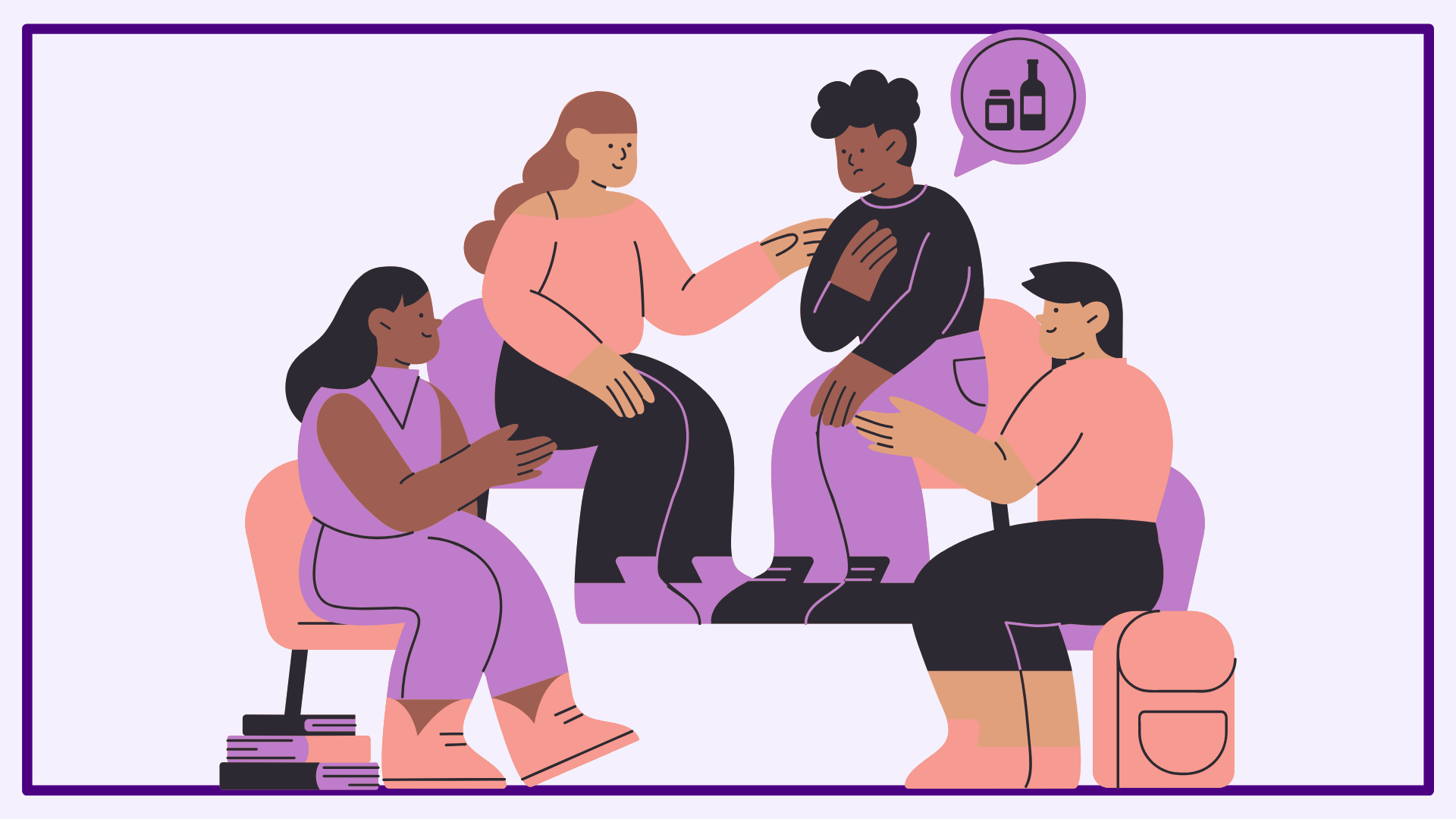
🧰 Made for Those Who Work in the Messy Middle of Healing
- Counsellors, psychologists, and social workers seeking advanced training in CPtsd and narcissistic abuse recovery.
- Allied health and pastoral care professionals supporting trauma-bonded or abuse-impacted adults.
- Educators and community leaders wanting a neuroscience-based, trauma-trained framework for complex trauma recovery.
- Students and emerging practitioners building professional credibility with CPtsd-specific, brain-based practice.
- Practitioners working toward certification and CEUs in CPtsd Recovery.
- Individuals with lived experience pursuing structured, professional-level CPtsd education and personal integration.
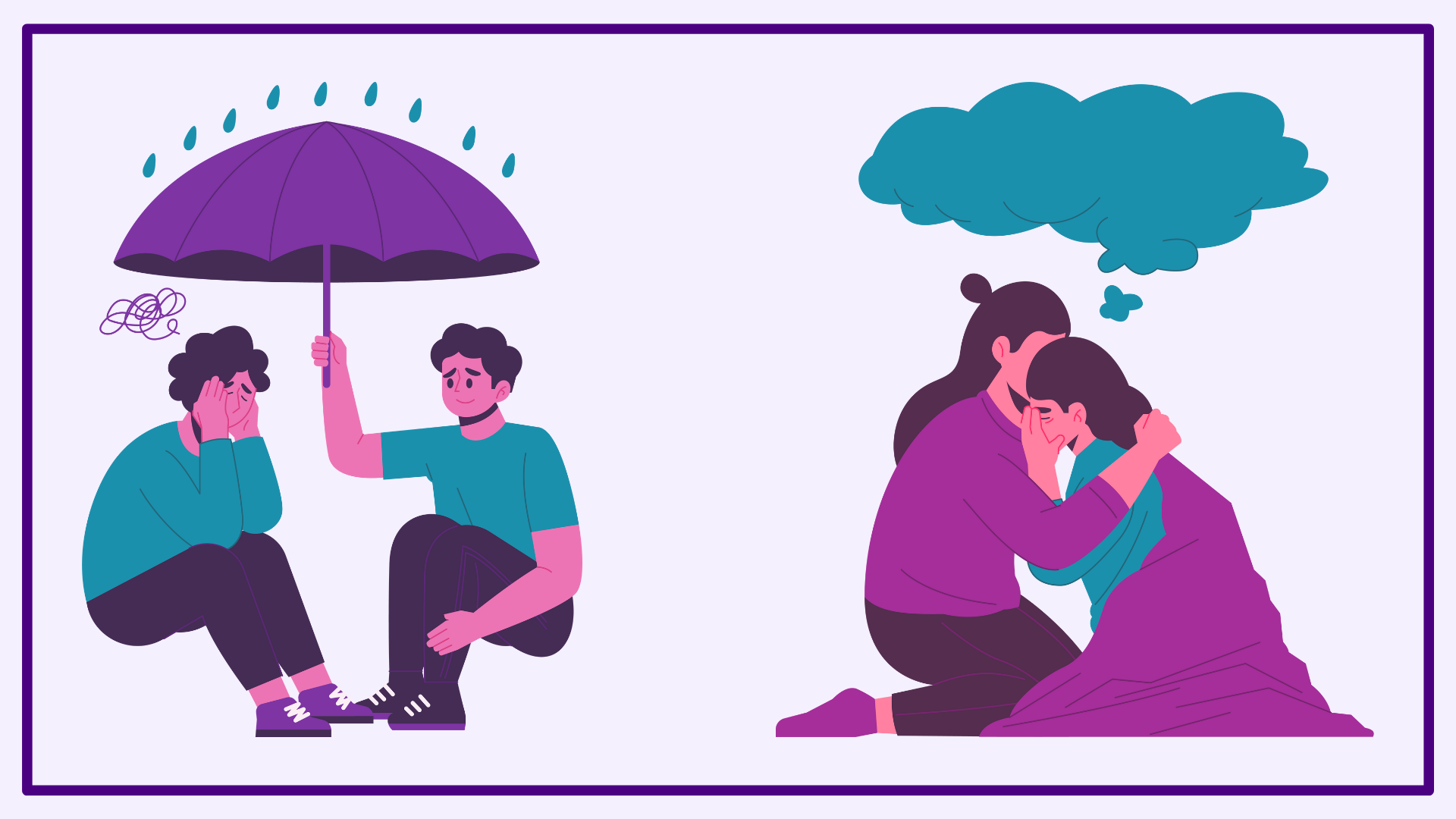
🌟 The Shift You’ll See in Clients (and Yourself)
Imagine sitting with a client who says, “I understand my childhood, but I still react like I’m living it.”
Through the lens of intergenerational trauma, that moment of insight becomes an opportunity - not for analysis, but for repair.
These courses don’t just deepen your knowledge; they transform how you see identity, loyalty, and belonging through a neuroscience and trauma-trained framework. You’ll walk away with greater clarity, confidence, and compassion for both your clients and yourself.
You’ll be able to:
-
Recognise inherited survival patterns that shape emotional reactivity, people-pleasing, and chronic self-blame.
-
Explain the brain’s adaptive logic behind loyalty conflicts and why clients often protect what once harmed them.
-
Help clients trace trauma loops across generations, understanding how identity scripts and coping patterns were passed down.
-
Guide clients to build coherent self-awareness, where thought, emotion, and behaviour start to align.
-
Model relational safety that allows clients to explore grief, anger, and forgiveness without shame or collapse.
-
Use experiential processes to help clients reframe protection as intelligence and transform it into resilience.
-
Support clients in developing generational insight - recognising what they inherited and choosing what continues.
-
Reinforce sustainable change through reflective dialogue, brain-based education, and grounded compassion.
-
Recognise your own intergenerational patterns as a practitioner and how they inform your work and empathy.
-
See freedom as integration, not disconnection - where clients finally experience safety within themselves, not just away from others.

Course 1 & 2 -Neuroscience of Intergenerational Trauma
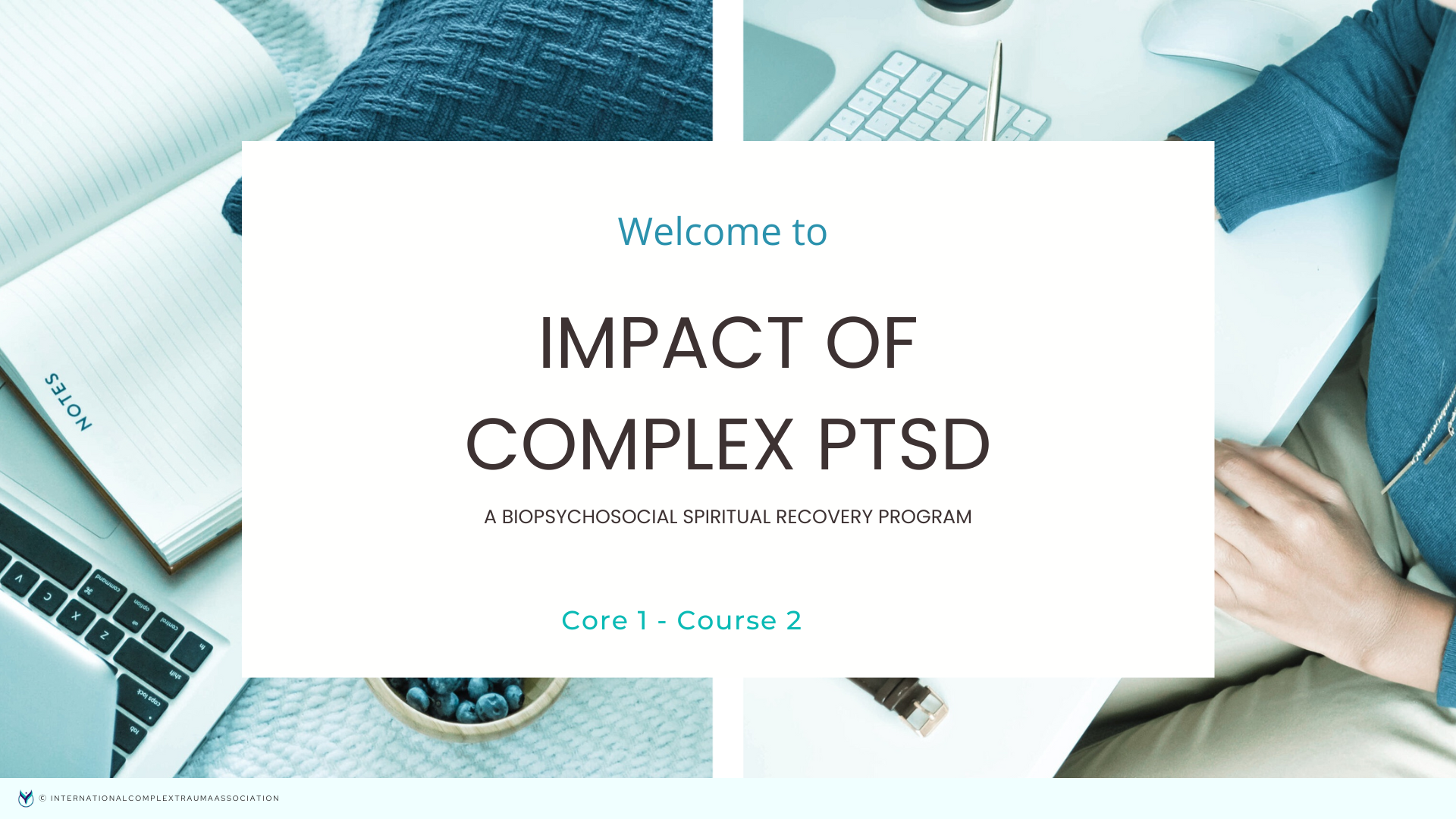
Course 3 -Family Dysfunction &self sabotage
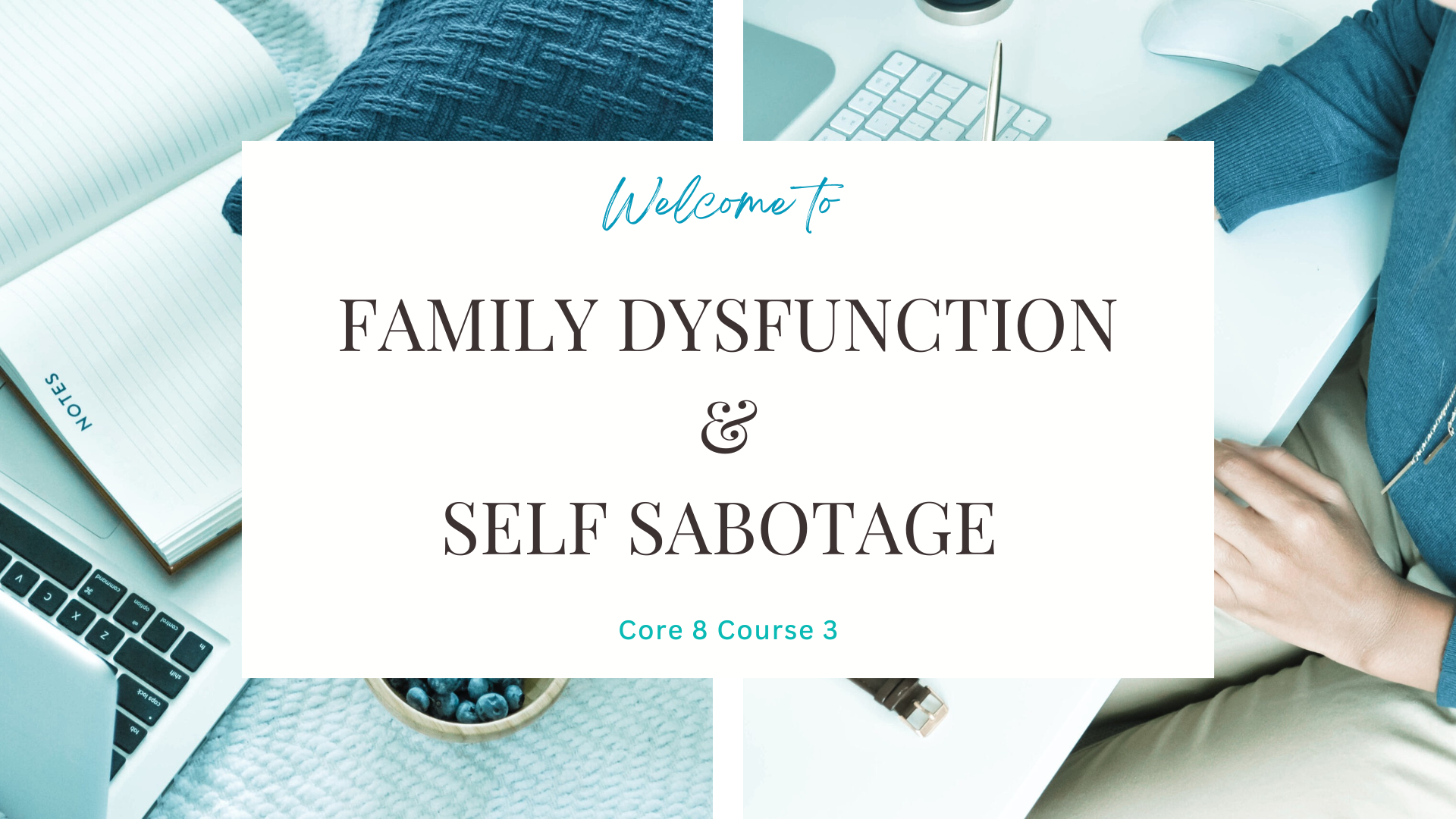
Course 4 - Intergenerational Family Roles
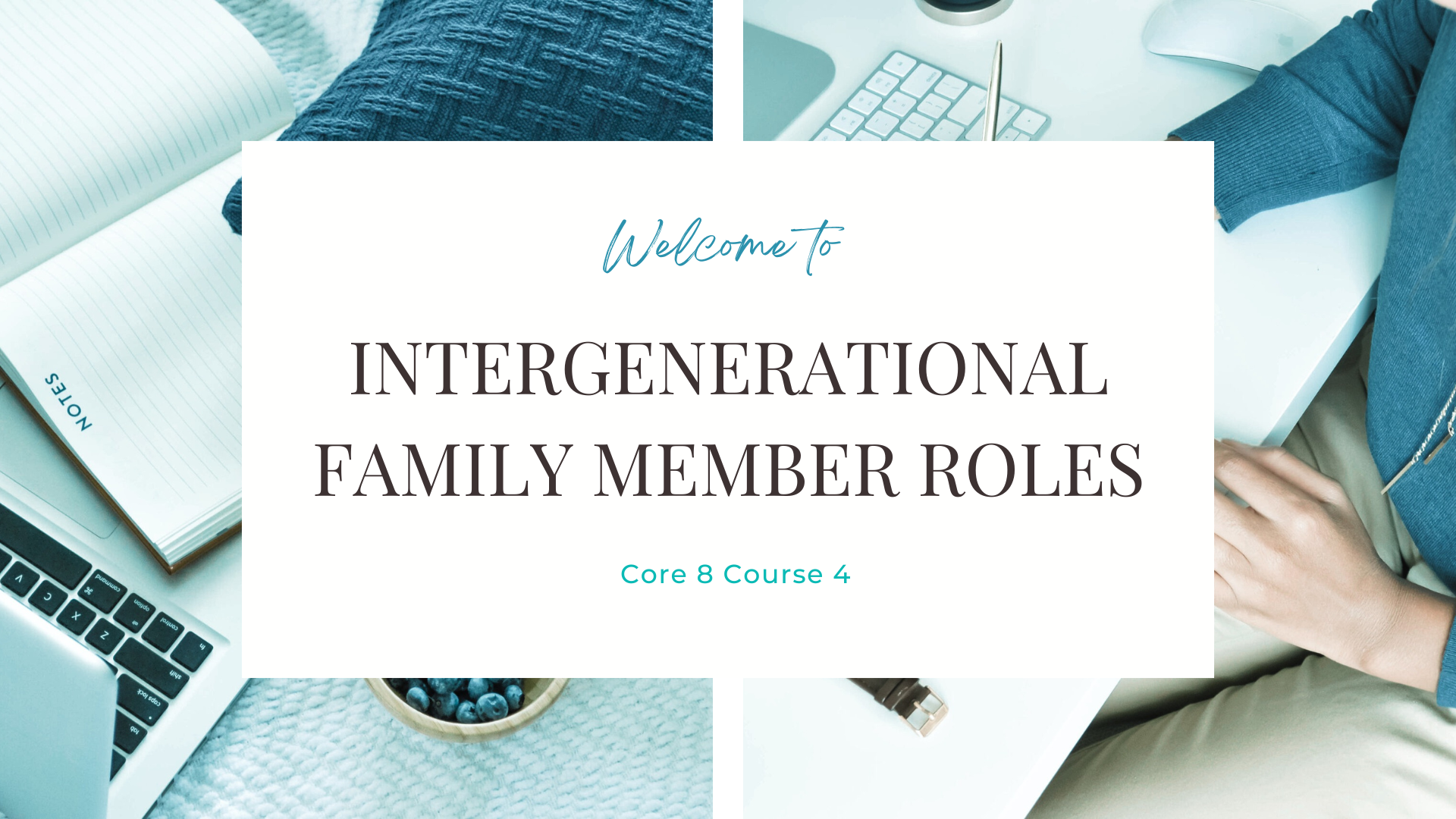
Course 5 - Building Relational Coherence in Practice
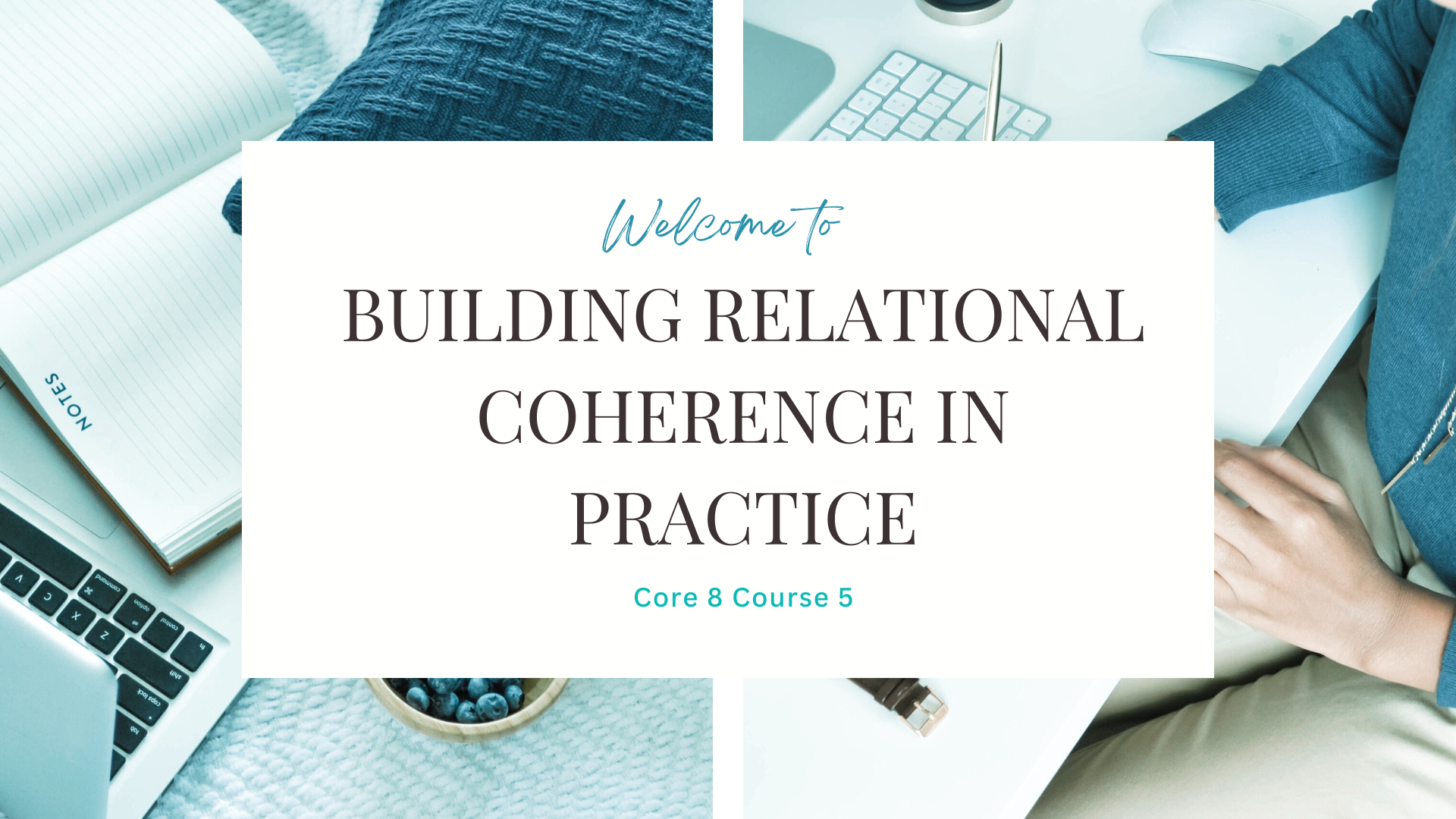
Course 6 - Case Study

Course - Bonus Flashbacks Building Capacity

💻 Learning That Fits Real Life ➡️
Accessible. Practical. Designed for the trauma-trained mind.
🌱 Free Weekly Supervision & Study Space
CPtsd Education
Extra CPtsd Information
Homework Canva Templates
Client Materials
Business Development
Extra Coaching Tools

🧠 The NeuroSynqt™ Difference
Adults with Complex PTSD have lived in trauma states for so long that dissociation, fragmentation, and survival scripts feel normal. Many do not recognise they are dissociating until explicitly taught how to begin reconnection and how to recognise that the brain is the driver.
Most models (polyvagal, IFS, bottom-up somatics) assume regulation is the starting point. In reality:
-
Regulation is not an entry point.
-
Regulation is a byproduct of integration.

Dr Dan Siegel
Why Being Trauma-Trained Changes Everything
Beyond trauma-informed into truly brain-based care
📊 Grounded in Science, Guided by Humanity
Bringing research and lived experience together
Recent studies show:
-
🧩 Up to 80% of adults raised by narcissistic or emotionally unavailable parents show symptoms consistent with complex trauma
-
🩺 1 in 3 mental health professionals report moderate to severe burnout (APA, 2024)
-
🧠 Neuroscience confirms that trauma impacts perception, not just emotion - changing how clients interpret safety, power, and connection
This course bridges clinical research with experiential recovery, giving professionals language that resonates with both the data and the heart.
Trauma Informed vs Trauma Trained
Linda Meredith
Passionate, Innovative, and Dedicated to
Complex Trauma Recovery
An Advanced, Neuroscience-Based Approach for Mental Health Professionals
Real reviews. Real professionals. Real impact.
Courses
🏆 Certification Pathway
- Individual Courses - like Core Unit 7, focusing deeply on identity repair
- Full Certification - becoming a Master Practitioner of Complex Trauma Counselling, accredited globally and eligible for CEUs
This certification has been peer-reviewed and accredited by professionals in the trauma field, ensuring credibility and recognition worldwide.
Developed by Linda Meredith through years of study and application with both clients and her own recovery, the NeuroSynqt™ framework is a unique, brain-based approach that delivers results in real-world practice.
